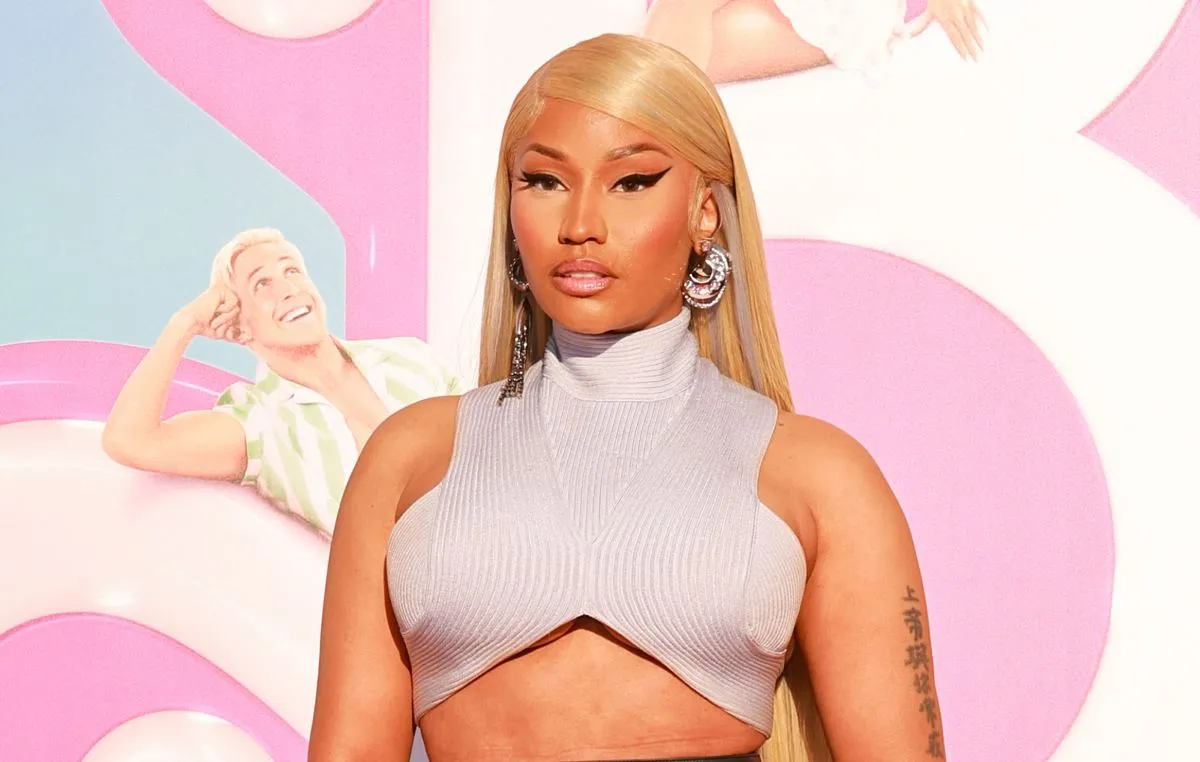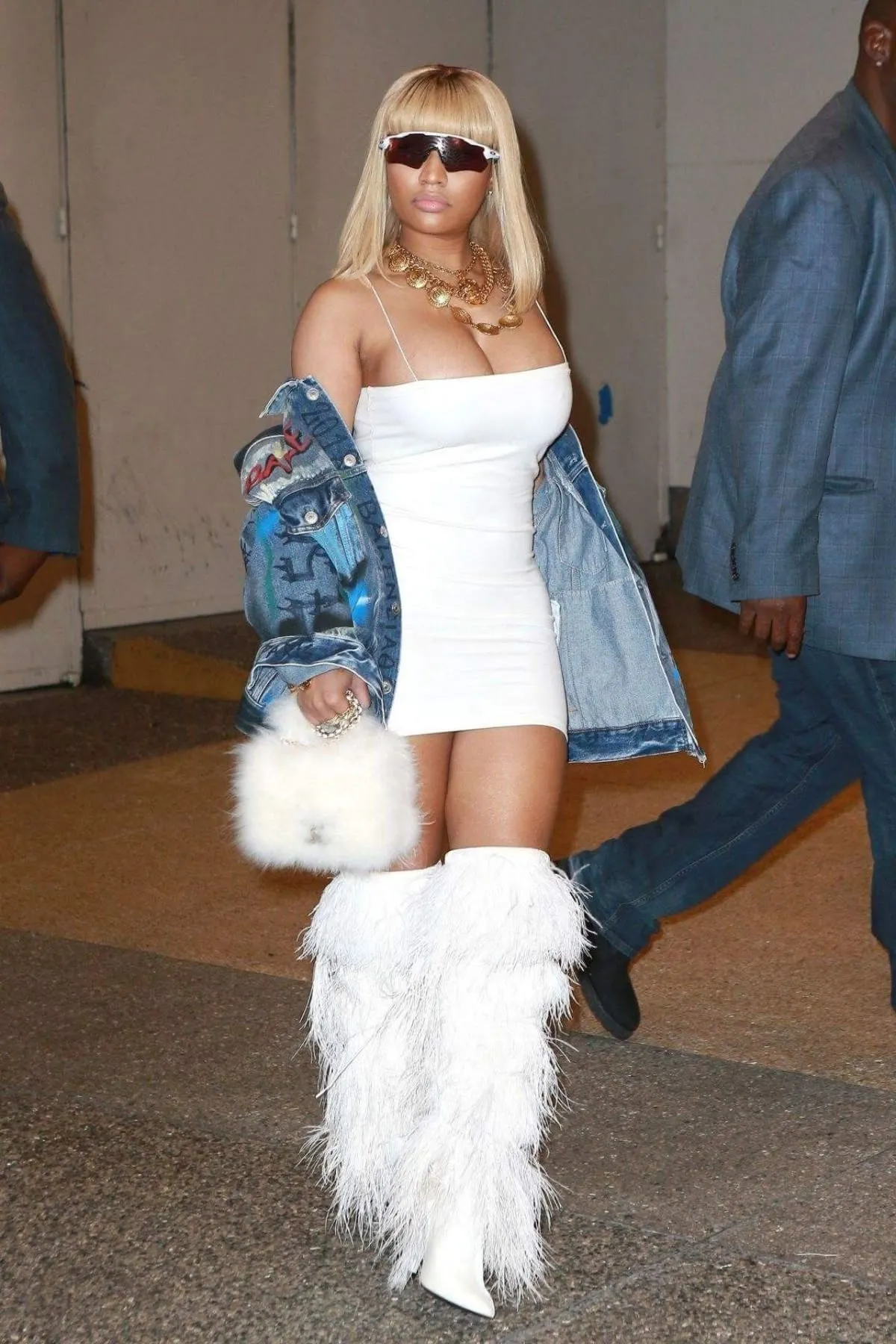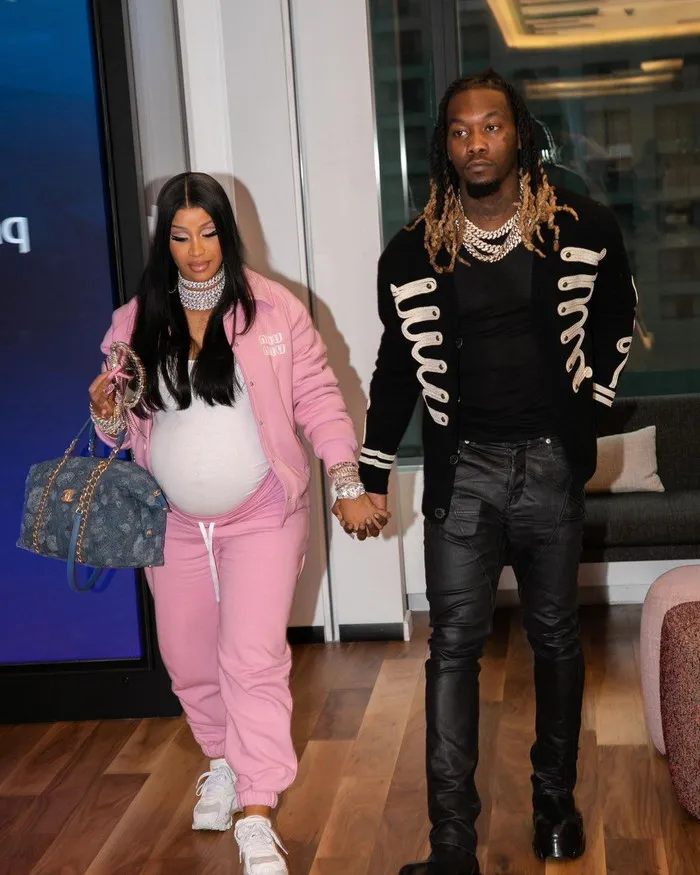
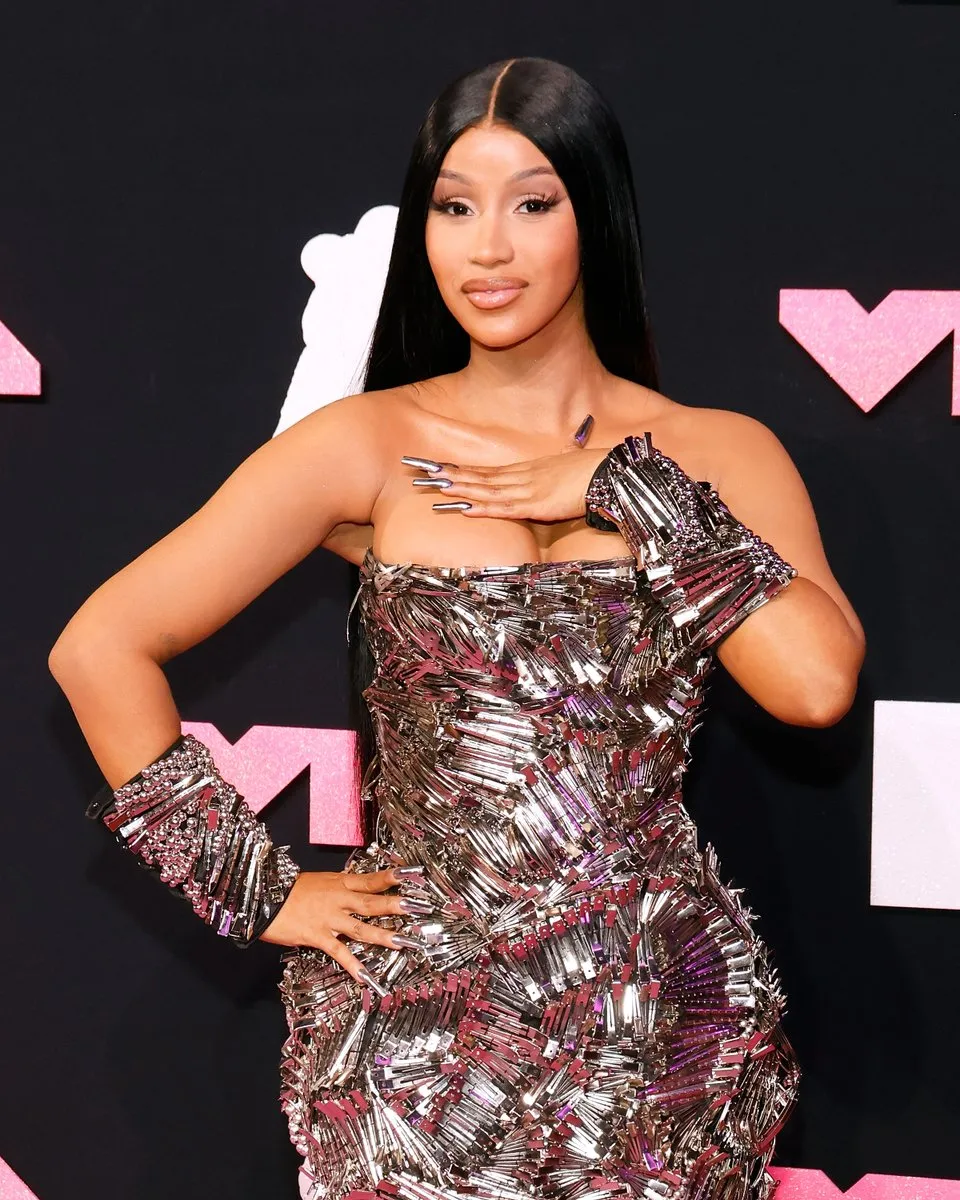
Cardi B Ignites Firestorm After VMA Snub — Slams ‘Cookie-Cutter Pop’ as Ariana Grande Dominates the Night
The MTV Video Music Awards (VMAs) have always been a stage for spectacle, controversy, and unforgettable pop culture moments. This year was no different. However, what set social media ablaze was not just the performances or the dazzling outfits but the glaring snub of Cardi B, one of the most influential rappers of her generation. The Bronx-born superstar, known for her unapologetic personality and chart-topping hits, left the night empty-handed while Ariana Grande swept several categories. The result was an eruption of heated debates, emotional reactions, and a raw outpouring from Cardi B herself, who took to social media to slam what she described as the “cookie-cutter pop” culture dominating award shows.
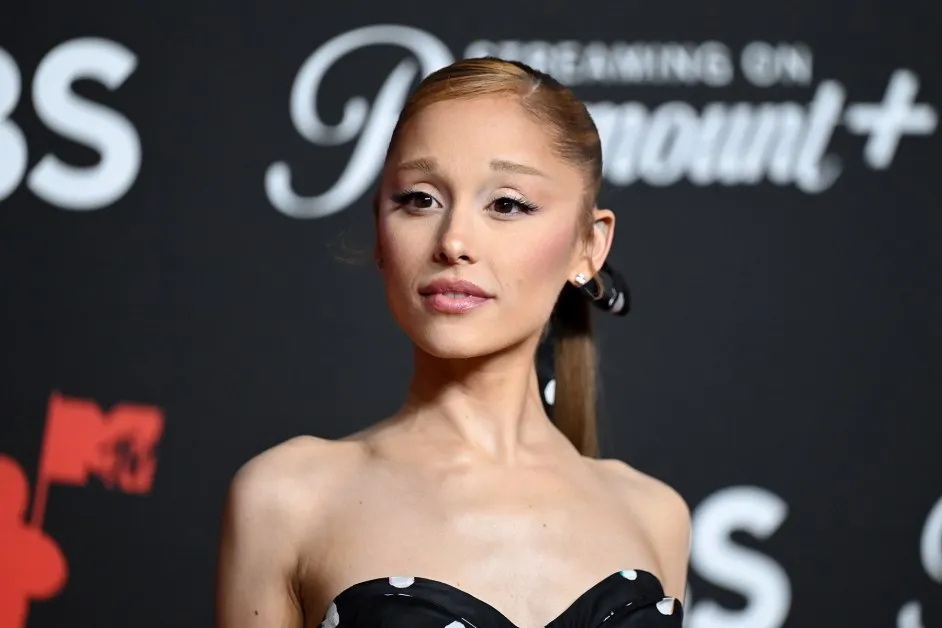
The aftermath of the awards has not only reignited discussions about industry bias but also put the spotlight on the ongoing tension between pop dominance and the growing influence of hip-hop. As Cardi B’s words echo across the music landscape, fans and critics alike are questioning what the snub means for authenticity, representation, and the future of music recognition.
The Shock of Cardi B’s VMA Snub
For months leading up to the ceremony, speculation was rife that Cardi B would be one of the night’s biggest winners. With multiple nominations across major categories, her presence on the list seemed to solidify her influence. Her music videos had amassed millions of views, her singles climbed the charts, and her collaborations were shaping the sound of 2024. Yet, as the evening progressed, it became clear that Cardi B would leave without a single win.
The disappointment was palpable not only among her fans but also within the broader hip-hop community. Social media timelines erupted with disbelief, and hashtags calling out the VMA snub began trending within minutes. Some fans noted the irony that Cardi B, whose songs consistently dominate both streaming platforms and cultural conversations, was overshadowed by what they called “safe choices.”
What amplified the frustration was not just the loss itself but the sweeping success of Ariana Grande. While undeniably talented and beloved by millions, Grande’s dominance of the night highlighted the ongoing preference award shows often give to mainstream pop artists over rap and hip-hop voices that push creative boundaries.
Cardi B’s Explosive Response
True to her outspoken nature, Cardi B did not remain silent. Within hours of the ceremony, she took to Instagram Live and Twitter to voice her feelings. With a mixture of anger and defiance, she accused the industry of celebrating “cookie-cutter pop” while sidelining artists who bring raw authenticity. Her words cut deeply, resonating with fans who have long criticized the VMAs and other award shows for failing to adequately honor rap and hip-hop.
She emphasized that while she respects Ariana Grande and other peers, the system often rewards predictability and mass-market appeal rather than risk-taking artistry. For Cardi, this was not merely about personal disappointment but about a systemic issue where female rappers are forced to fight harder for recognition despite their undeniable impact.
Her fiery statements ignited widespread debates. Supporters rallied behind her, praising her for saying what many believed but few dared to express openly. Detractors, however, accused her of being bitter or disrespectful. Yet regardless of where one stood, there was no denying that Cardi B’s response transformed a routine award show outcome into a full-blown cultural moment.
Ariana Grande’s Night of Triumph
While Cardi’s frustrations captured headlines, the night undeniably belonged to Ariana Grande. The pop powerhouse walked away with multiple awards, solidifying her reign as one of the most commercially and critically successful artists in the industry today. Her performances dazzled the crowd, and her emotional acceptance speeches painted the picture of an artist at the peak of her career.
For Grande, the victories were a testament to years of consistency, resilience, and connection with her fan base. Songs from her latest album had dominated charts globally, and her music videos showcased a polished visual aesthetic that resonated with audiences worldwide.
Still, her sweeping triumph was interpreted by some as symbolic of the imbalance in recognition between pop and hip-hop at mainstream award shows. While no one questioned her talent, the conversation quickly shifted to whether her success came at the expense of deserving artists like Cardi B, who represent a different but equally important facet of the industry.
Pop vs. Hip-Hop: The Ongoing Industry Tension
The Cardi B snub is more than a singular event; it reflects a broader trend in music recognition. Over the past decade, hip-hop has emerged as the most consumed genre in the United States, shaping global culture through fashion, slang, politics, and lifestyle. Artists like Cardi B, Megan Thee Stallion, Kendrick Lamar, and Drake have become cultural touchstones, influencing millions far beyond the confines of music.
Despite this, award shows like the VMAs often lean heavily toward pop music, particularly when it comes to major categories. Critics argue that this is not merely about popularity but about the industry’s comfort with artists who fit a marketable mold. Pop often offers polished, palatable, and predictable aesthetics that appeal to broader demographics, while hip-hop tends to embrace raw narratives that challenge norms.
When Cardi B described the VMAs as promoting “cookie-cutter pop,” she encapsulated the frustration of countless artists who feel marginalized by systems that claim to celebrate diversity but often default to safe choices. The debate is not about whether Ariana Grande deserved recognition—her artistry speaks for itself—but whether award shows are willing to equally celebrate artists who disrupt the status quo.
The Role of Authenticity in Music Recognition
At the heart of Cardi B’s frustration is the idea of authenticity. Her career has been built on unapologetic storytelling, blunt honesty, and a refusal to conform to traditional expectations. She represents a generation of artists who see their music as not just entertainment but as a reflection of lived experiences.
In contrast, pop music, while equally valuable, often prioritizes accessibility and broad commercial appeal. The conflict arises when award shows prioritize the latter at the expense of the former. Cardi B’s outburst forces the question: Should music awards celebrate safe commercial success or artistic authenticity?
Her fans argue that Cardi embodies the kind of fearless creativity that awards should highlight. Her lyrics speak to struggles, triumphs, and cultural realities that resonate deeply with millions, especially among communities often underrepresented in mainstream music spaces. By failing to honor her, the VMAs sent a message about which stories they deem worthy of celebration.
Fan Reactions: A Divided Community
The online reaction to the VMA snub revealed the passionate divide among music lovers. Cardi B’s fans, known for their loyalty and intensity, flooded platforms with messages of support. They pointed out her streaming numbers, her cultural impact, and her role in shaping today’s sound. For them, the snub was not just an oversight but a deliberate dismissal.
On the other side, Ariana Grande’s supporters defended her wins, arguing that she earned them through consistent effort, vocal excellence, and artistic evolution. They dismissed Cardi’s comments as unnecessary drama, suggesting that awards are subjective and that both artists can coexist at the top.
This clash of fandoms highlighted how deeply personal music recognition has become in the age of social media. Awards are no longer just industry accolades—they are perceived as validations of identity, community, and culture. Cardi B’s comments tapped into these emotions, ensuring that the conversation would extend far beyond the ceremony itself.
What This Means for the Future of the VMAs
The controversy raises pressing questions about the relevance of the VMAs and similar award shows. In an era where streaming numbers, viral moments, and cultural influence often outweigh traditional metrics, do award shows still reflect the reality of music consumption? Or are they relics of an older industry model that privileges certain genres and aesthetics over others?
If the VMAs hope to remain relevant, they may need to confront the criticism head-on. Recognizing hip-hop and its leading voices is not just about fairness; it’s about reflecting the true pulse of global culture. Artists like Cardi B are not fringe figures—they are at the center of music’s evolution. By sidelining them, award shows risk alienating entire generations of fans.
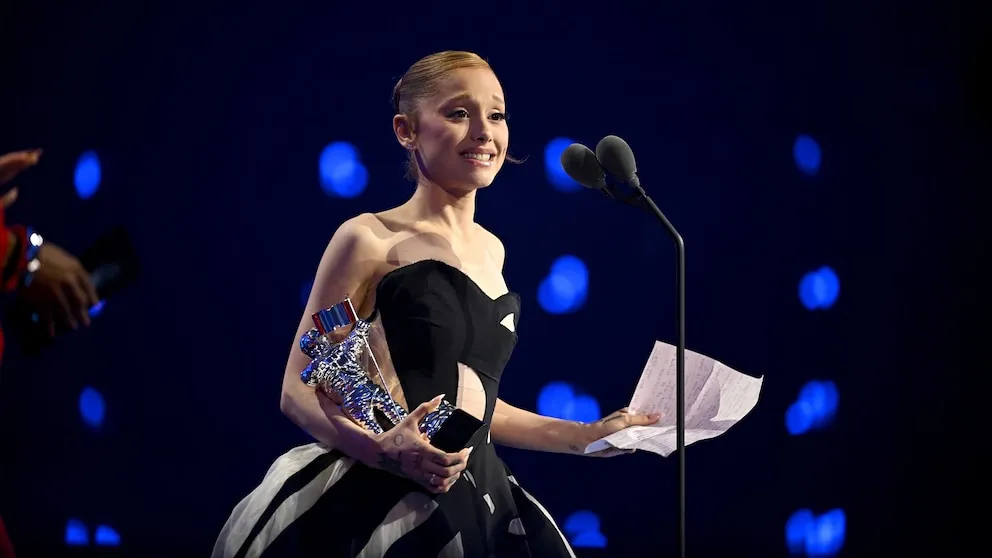
Conclusion: Cardi B’s Defiance as a Turning Point
The Cardi B VMA snub is likely to remain one of the year’s most talked-about music controversies. By slamming “cookie-cutter pop” and calling out the industry’s biases, Cardi transformed a personal setback into a broader cultural statement. Her defiance underscores the growing demand for authenticity, diversity, and recognition in an industry that often falls back on predictability.
While Ariana Grande’s dominance at the VMAs reflects her undeniable talent and influence, it also serves as a reminder of the systemic imbalances that continue to shape music recognition. The clash between Cardi and the industry establishment is not just about trophies—it is about who gets to define the sound and soul of contemporary music.
In the end, the firestorm ignited by Cardi B may prove to be more impactful than any award. By challenging the status quo, she has ensured that the conversation about fairness, authenticity, and the future of music awards will continue long after the stage lights fade. And if history has taught us anything, it is that Cardi B thrives not in silence but in the chaos of controversy—turning every snub into fuel for her next triumph.








